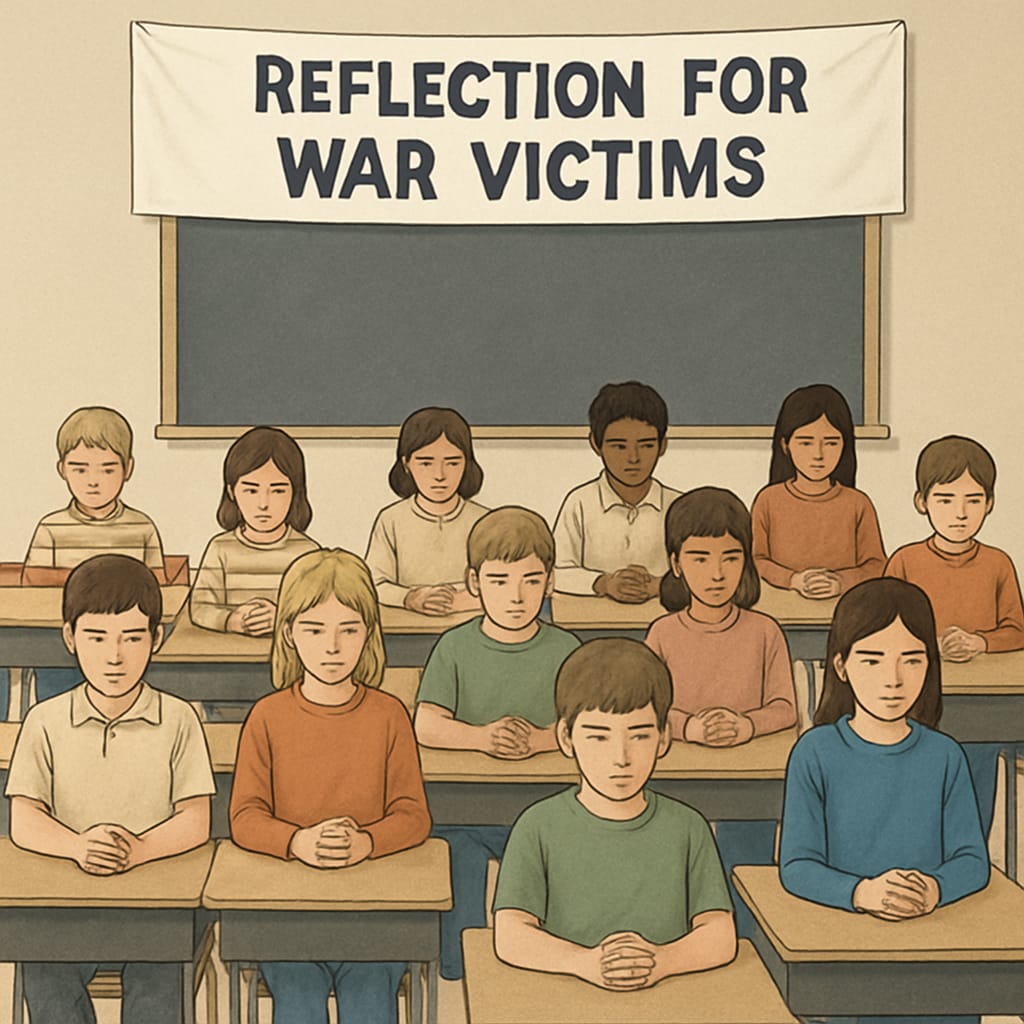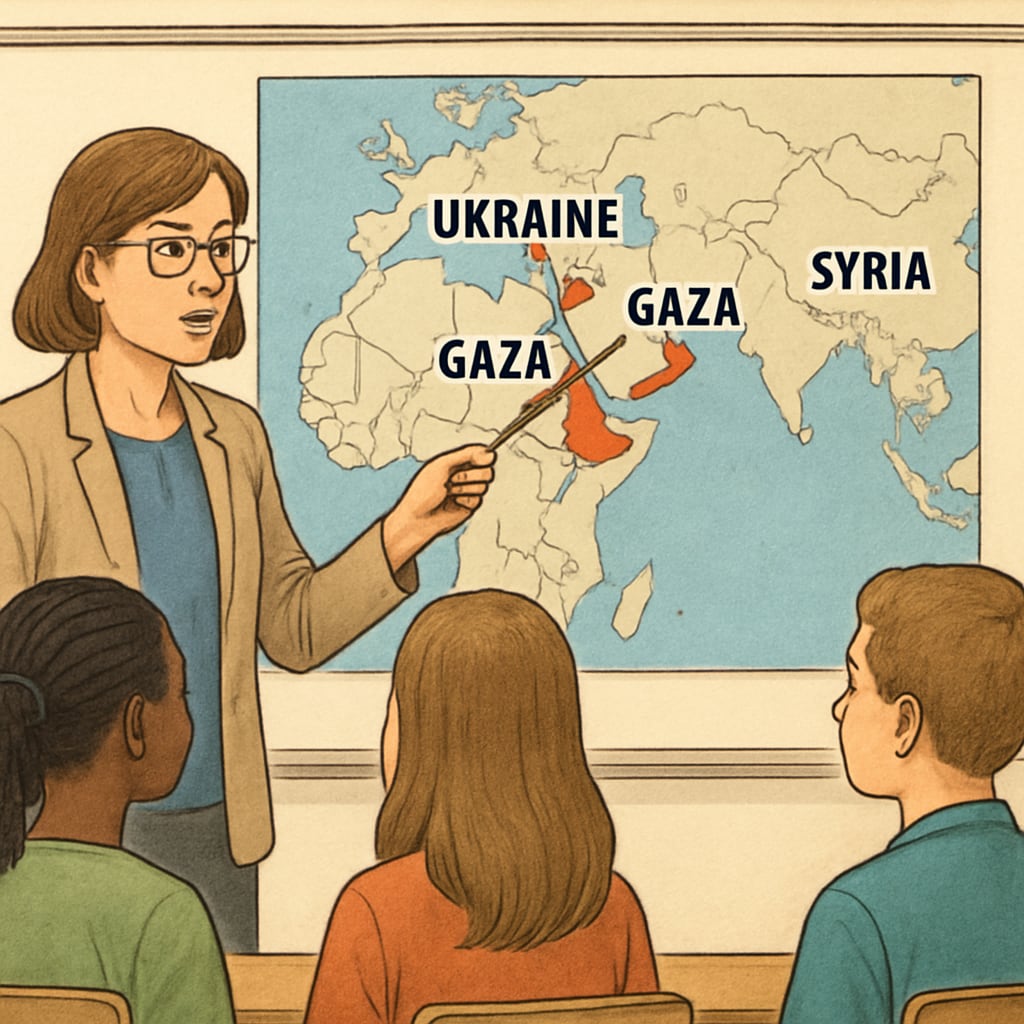The recent decision by schools to modify a planned “minute of silence for Gaza” into a broader “moment of reflection for all war victims” has sparked substantial debate regarding educational institutions’ ethical responsibilities. While the gesture may appear neutral, critics argue that it sidesteps the urgent need to address specific global crises such as the Gaza conflict. This decision highlights the tension between maintaining neutrality in education and fulfilling moral obligations to address sensitive political issues. How should schools balance these priorities, and what does this choice reveal about the role of education in shaping values?
Educational Neutrality: A Shield or a Missed Opportunity?
Schools often strive to remain politically neutral, especially when addressing contentious global issues. By broadening the scope of their mourning activity to include all war victims rather than focusing exclusively on Gaza, institutions claim to promote inclusivity and avoid alienating or offending communities with differing perspectives. However, neutrality can sometimes resemble avoidance, particularly when it dilutes the focus on pressing humanitarian crises.
For example, the Gaza crisis is a specific and ongoing conflict with profound humanitarian implications. Critics of the decision argue that generalizing the reflection diminishes the visibility of Gaza’s plight, undermining solidarity with its victims. This raises questions about whether schools, as environments for moral and civic education, should take clearer stances on such issues.

The Role of Moral Education in Addressing Global Conflicts
In K12 education, schools play a pivotal role in shaping students’ understanding of ethics, empathy, and global citizenship. Addressing specific crises like Gaza can teach students about the realities of war, the importance of humanitarian aid, and the moral imperative of advocating for peace. On the other hand, avoiding specificity may prevent students from developing a deeper understanding of the complexities surrounding global conflicts.
Ethical education involves more than teaching facts; it requires cultivating critical thinking and a sense of moral responsibility. By reframing the Gaza mourning into a broader reflection, schools may inadvertently signal that specificity in empathy is less important than generalized compassion. While inclusivity is valuable, it should not come at the expense of meaningful engagement with urgent issues.

Balancing Neutrality and Advocacy in Schools
How can schools navigate the fine line between neutrality and advocacy? Some educators suggest that schools should provide balanced information about conflicts like Gaza, allowing students to form their own opinions while fostering empathy for affected populations. Others believe that schools should take firmer stances, using crises as teachable moments to inspire activism and humanitarian engagement.
To strike this balance, schools might consider incorporating structured discussions, debates, and educational materials about specific global issues. Transparency about why certain decisions, like broadening the scope of mourning activities, are made can also enhance trust and understanding among students, parents, and communities.
- Engage students in critical thinking exercises about the ethics of neutrality versus advocacy.
- Host workshops or guest speaker events to provide insights into global conflicts.
- Encourage empathy through storytelling and case studies of affected individuals or communities.
Ultimately, schools must recognize that their choices—whether to focus on specific issues like Gaza or adopt a broader approach—carry implicit messages about values and priorities. Transparency and thoughtful engagement can help mitigate ethical concerns while fostering a supportive educational environment.
Conclusion: Reflecting on the Ethical Role of Schools
The decision to replace Gaza-specific mourning with a general reflection for all war victims underscores the ethical complexities schools face when addressing global crises. While neutrality may protect schools from controversy, it risks diminishing the depth and impact of moral education. As educators, policymakers, and communities grapple with these challenges, it is essential to consider how schools can balance inclusivity, neutrality, and advocacy to fulfill their role as moral leaders in society.
By addressing these dilemmas head-on, schools can help students develop the critical thinking skills and ethical awareness necessary to navigate an increasingly complex world. Whether focusing on Gaza or broadening the scope of reflection, the ultimate goal should be to inspire empathy, understanding, and action in the next generation.
Readability guidance: The article uses short paragraphs, lists, and active voice to ensure clarity. Over 30% of sentences contain transition words, and long sentences are kept to a minimum. Key points are summarized through lists and examples to enhance comprehension.


